Graham Reid | | 4 min read
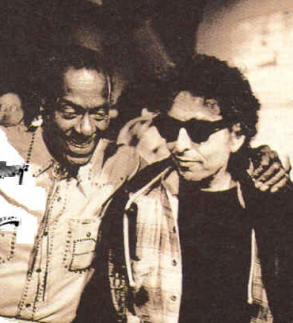
Something like that.
Now, it isn't really counter-intuitive to say that other people actually did the songs of Chuck Berry and Bob Dylan better than the songwriters themselves . . . but two albums released through Ace allow us a chance to use the word.
And to hear their classic songs as performed by others.
Rock and Roll Music!; The Songs of Chuck Berry and Take What You Need; UK Covers of Bob Dylan Songs 1964 – 69 pull together a considerable diversity of artists without resorting to the Beatles and Stones for the former or the Hollies (who did a whole album of Dylan songs in '69) on the latter.
The Berry collection naturally includes many versions by his peers in the Fifties rock'n'roll generation like Jerry Lee Lewis (a salacious Little Queenie), Buddy Holly (Brown Eyed Handsome Man), Elvis (Too Much Monkey Business), and artists who heard the country music that was in Chuck: Marty Robbins on Maybelline, Sleepy La Beef with You Can't Catch Me, Dwight Yoakam from '97 with Run Rudolph Run.
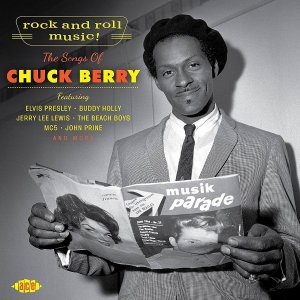 There
are also some excellent and unusual inclusions: the Ken Colyer
Skiffle Group in '56 who hesitantly work their way diligently the
dark Down Bound Train – the flipside of Berry's first UK single –
and became the first British act to cover a Berry song.
There
are also some excellent and unusual inclusions: the Ken Colyer
Skiffle Group in '56 who hesitantly work their way diligently the
dark Down Bound Train – the flipside of Berry's first UK single –
and became the first British act to cover a Berry song.
There's also the sinister and slightly psychedelic version of Come On in '78 by Ian Gomm, formerly of Brinsley Schwartz; a straight-ahead Talking 'Bout You by Boston's Remains (Dr Feelgood's version was much better); a leaden Johnny B Goode by Jay and the Americans; John Hammond with a typically bluesy take on No Money Down; archetypal Beach Boys with Rock and Roll Music . . .
The album opens with a blistering r'n'b-belter Roll Over Beethoven by the Helene Dixon (with Mickey Baker on guitar) and representing the early Sixties Brits who covered Chuck are the Swinging Blue Jeans (Around and Around), the Pretty Things (a chugging Oh Baby Doll from '66 which reminds you how close they and the Stones were at times), the Hollies (Sweet Little Sixteen) . . .
Then add in MC5 (a surprisingly straight but equally ironic Back in the USA, dxid black Chuck or white outsiders MC5 actually feel welcome in the USA?), John Prine (You Can never Tell), Carlos Santana with Book T. (an obviously Hispanic Havana Moon), Don Covay (a reggae-soul Memphis) and more.
By its very nature this was always going to be a mixed bag and the absence of the Stones (understandable in terms of licensing) was always going to pul it back a notch. But at least half of these versions are very interesting if not exciting.
Come On, by Ian Gomm
There are at least two interesting things about the British artists covering Dylan songs, the first and often forgotten, is how much Dylan was influenced by English and Scottish folk music in his early years.
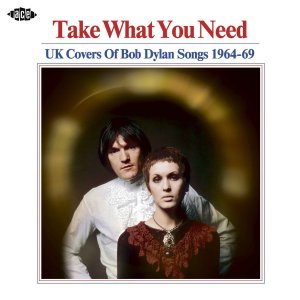 And
that in January '63 Dylan – while the Beatles were recording a BBC
television session – made his first appearance on the British small
screen in the play Madhouse on Castle Street in which he played some
of his songs like a commentary on the action. It was Dylan's first
trip outside the US so the man we associate with New York also spent
an admittedly but useful time in London where he met up with the
likes of Martin Carthy and others in the British folk scene, from
whom he learned old ballads.
And
that in January '63 Dylan – while the Beatles were recording a BBC
television session – made his first appearance on the British small
screen in the play Madhouse on Castle Street in which he played some
of his songs like a commentary on the action. It was Dylan's first
trip outside the US so the man we associate with New York also spent
an admittedly but useful time in London where he met up with the
likes of Martin Carthy and others in the British folk scene, from
whom he learned old ballads.
So British artists covering Dylan were often hearing echoes of lyrics and melodies that were not that unfamiliar.
Of the melodic ideas the collection also drives home a point what the man himself said in his autobiography Chronicles, Volume I: that everyone used to talk and write about his lyrics but fewer people noted his melodies.
Yet if he were only a word guy, he said, how come there were so many instrumental versions of his songs, even as early as '66 when guitarist Duane Eddy released Duane Eddy Does Bob Dylan and the Golden Gate Strings and Gotham String Quarter around the same time also did instrumental albums of his songs.
Good point, and in the hands of melodically-inclined artists like Marianne Faithfull (Blowin' in the Wind), Chad and Jeremy (Mr Tambourine Man delivered like a more public school-educated Byrds), Julie Felix who was always unfairly compared to Joan Baez (One Too Many Mornings) and Fairport Convention I'll Keep It With Mine) the memorable melodies of Dylan come through with clarity . . . perhaps more so than on his originals.
But there is always that incredible “worthiness” about so many of the versions on this 22-song album, not the least Times They Are A Changing by the Ian Campbell Folk Group, The Picadilly Line [sic] on a whispery Visions of Johanna;
There is also dreariness: Alex Campbell who can seem to neither hear the words nor find the tune in Tom Thumb's Blues but knows he should be “serious”;
More fun was to be elsewhere: Manfred Mann with the jangle of the then-unreleased Dylan song If You Gotta Go, Go Now; the odd Love Minus Zero in a clearly enunciated quasi-recitation from Noel Harrison (son of actor Rex) who seems not to find the lovely melody; the politics of race in Oxford Town somewhat undercut by the jaunty folk-club style of the banjo-lead Three City Four; a churning pre-Hendrix r'n'b version of All Along the Watchtower by The Alan Bown Set . . .
And – alongside Julie Driscoll and Brian Auger's groovy I Am a Lonesome Hobo, that's them on the cover – one of the standouts is by Alan Price, once the organist for the Animals' House of the Rising Sun which they adopted from Bob, who takes the mood right down for a soulful and intimate edition of Dylan's cosmically-Beat, obscurantism but beautiful To Ramona.
To Ramona, by the Alan Price Set
As always with such compilations there are big names lurking in the background on some songs: most of soon-to-be Deep Purple behind Boz on I Shall Be Released, drummer Twink of the Fairies who went on to the Pretty Things and P{ink Fairies; Martin Carthy a member of Three City Four; Nicky Hopkins, Danny Thompson, Herbie Flowers and other session greats were in the Picadilly Line band . . .
Another mixed bag perhaps (Mixed Bag do an enjoyable Million Dollar Bash with an arrangement by Andrew Lloyd Weber) but there is actually quite a lot to enjoy here right to the two final pieces, Joe Cocker with his moving and understated Just Like a Woman and Sandie Shaw defying gender – and somewhat counter-intuitive? – with Lay Lady Lady.
Both these albums on Ace -- along with other similar compilations such as this and this and this and this -- are available in New Zealand through Border Music.


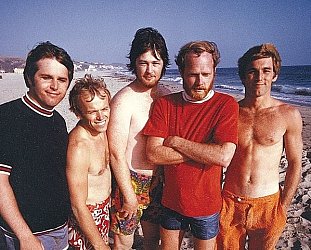
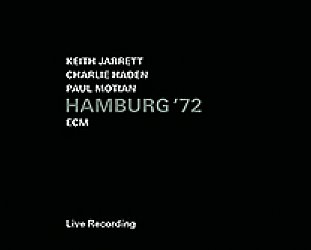
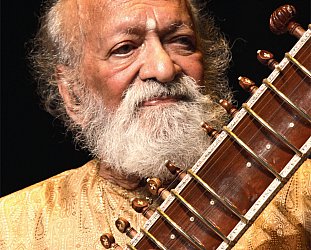
post a comment